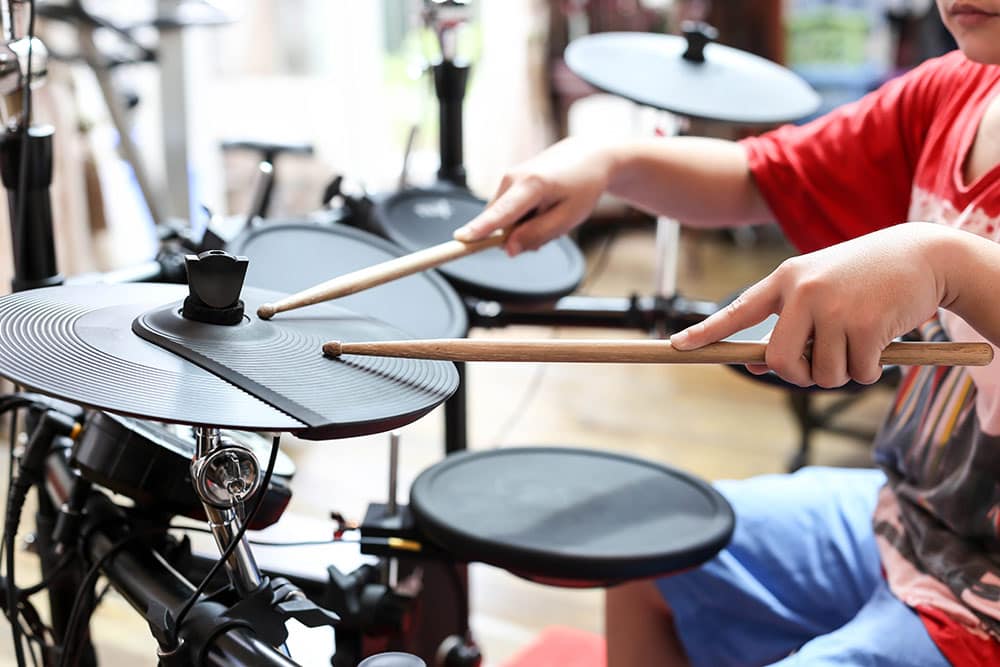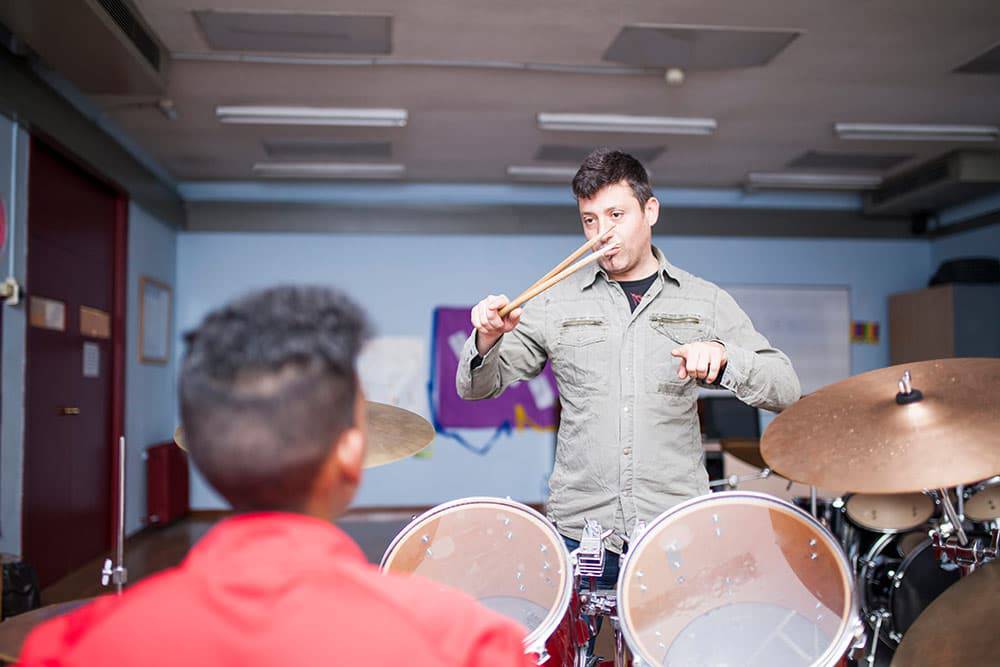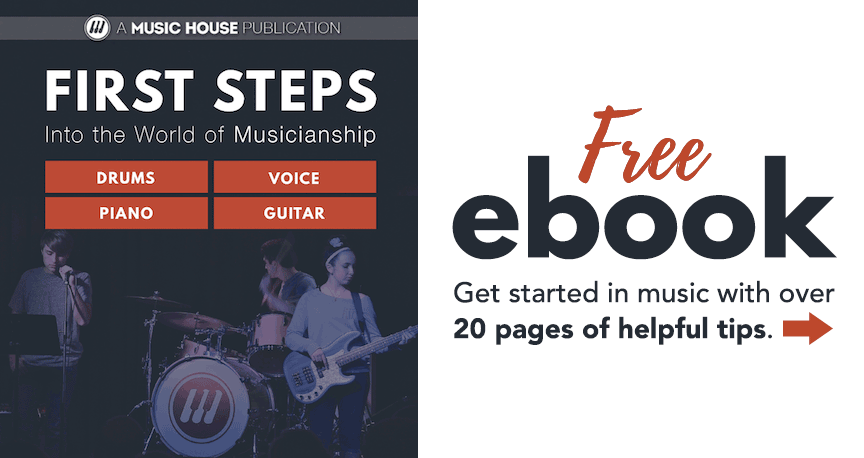9 Tips for Beginners Learning to Play the Drums

Drums are one of the oldest instruments known to mankind. They are an important part of all music genres. Playing drums is quite exciting and fun. However, if you are a beginner, you are bound to face some difficulties.
Like other exciting hobbies such as acting, surfing, skateboarding, etc., even drumming requires specific commitment and some practice. Consider taking private music lessons online. Also, a few drumming tips will help you get the most out of your drumming lessons. Here are some of them so that you can learn to play drums effortlessly.
1. Plan A Schedule
You either need to practice self-discipline or draft out a consistent practice schedule that is in your best interest. There is no denying the fact that practicing half an hour a day is better than doing it for three hours a week.
However, at the same time, you should not set unrealistic goals, or else you will end up in disappointment. Four to five practice sessions a week will prove sufficient if you are consistent. Keep motivating yourself for better results.
2. Get Your Practice Space Ready
Drumming is an activity that will not let you build a good relationship with your neighbors. Hence, when planning out your practice space, you should consider everything it takes to produce less noise.
You will find some cost-effective solutions, while others may be time-consuming and require much effort. For instance, you can either choose to buy a set of practice pads or invest a large amount in electronic drum sets.
3. Practice Good Form
After creating the perfect practice space, you should work to establish a proper form. It would help if you practiced seating style, in case you are a beginner drummer.
Drummers generally sit straight with the drum throne situated at a heightened level so that when they put their legs on pedals, it makes an angle of 90 degrees. It eliminates unnecessary strain from your body and also enables you to produce good sound.
4. Take Professional Drumming Lessons
Although you will have plenty of lesson plans online, it is advised that the best resource from where you can get a lesson plan is your teacher. Teachers are aware of your skills, and they also know your strengths and weaknesses.
Generally, the lessons available online are one-size-fits-all. Still, when your teacher produces a lesson plan for you, it will be focused on your skills and personalized. Professional music lessons are an excellent way to start learning to play drums.
5. Practice With A Metronome
A drummer always has to keep track of time while performing. Practicing with a metronome will help you to keep a steady rhythm and not get off tempo. If you're a drummer and cannot roll on time or play a solid drum beat, how will you lead a band?
Several songs taped professionally are on time. This way, you can perform with your favorite band instead of playing a monotonous click track. Make sure that you don't get distracted while doing this.

6. Watch Professional Drummers
Not all lessons are learned in classrooms. Just like you can improve your math and calculations anytime, even at the grocery store, you can enhance your drumming skills by watching professional drummers.
Try to pick up their styles and techniques, and that will do wonders. You can also choose to catch your favorite band's live performance or watch them play on a DVD.
If you have some space in your practice area, you can install a TV and DVD player so that you can watch their videos and practice along. This way, you will have fun and boost your drumming skills to a great extent.
7. Stick To One Learning Method
Heel-Up vs. Heel-down are two standard techniques followed by drummers. In the heel-down technique, the entire bottom portion of your foot remains on the pedalboard as the lower-leg and ankle push down. This technique helps to produce a more resonant bass tone.
In the heel-up technique, your heel rises slightly above the pedal, and the ball foot remains at the same place. This technique uses big muscles in your hips and upper legs and can also yield powerful strokes.
8. Learn The Basic Drum Beats
You can choose to check some beginner drumming tutorials that will help you learn drumming skills. It is crucial to get the foundation right so that you perfect your skills. An excellent first step is to learn to hold your drumsticks. Working with the drumsticks is what you need to do while drumming.
You will learn to play basic beats, and it will prove rewarding since, after learning them, drumming will become easy for you. Playing the drums may initially seem daunting. You may face problems in coordinating your limbs together, but consistent practice will help you get the process right.
9. Learn The Basics Of Drum Notation
This fact may sound boring to you, but one of the essential elements of learning drums is indeed the ability to read drum sheets. The majority of experienced drummers at least know the basics of drumming. After learning the basics, you can pick up any drum score and start playing.
After mastering the basics of drums, you should choose to get a good drum book. You will feel great when you can sit behind the drum kit and play the drum notation effectively. It will lead to a much more efficient and effective method of practice. This way, you will not have to scroll through videos as well.
The Bottom Line
Learning to play an instrument is not always easy, but make sure that you are having fun. Start with the basics and then level up slowly. Learning to play drums requires the right amount of concentration and practice.
The first steps are certainly the most challenging. But, once you are determined to get past that point, there is no turning back. Make sure to take adequate time out of your hectic schedule for practicing drumming. Also, follow your teacher's advice and act on it accordingly.

